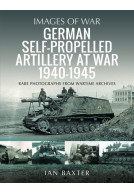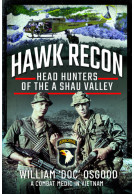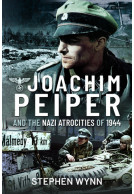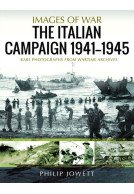The Intelligencers (eBook)
British Military Intelligence From the Middle Ages to 1929
Imprint: Pen & Sword Military
File Size: 5.6 MB (.epub)
Pages: 224
Illustrations: 32 black and white illustrations
ISBN: 9781844683642
Published: 4th April 2011
| Other formats available | Price |
|---|---|
| The Intelligencers Paperback Add to Basket | £16.99 |
Intelligence about the enemy is a fundamental part of any war or battle, knowledge of the enemy’s strength, dispositions and intentions are essential for success. This book reveals that for 250 years the British Army resolutely failed to prepare for war by refusing to establish a nucleus of soldiers in peace, trained to obtain intelligence in war. Although there were Scoutmasters and secret spy organisations such as Walsingham’s in the 15th Century, in no major conflict from the Civil War of 1642, including the Peninsula, the Crimea, Burma, Egypt and South Africa and in the multitude of small wars that gained Britain an empire, was there any staff branch or unit specifically pre-established to gain intelligence or frustrate the enemy from obtaining intelligence. Yet the story of British military endeavour over 250 years is a remarkable story of individuals’ bravery, achievement and success. We read of the Scoutmaster whose role was to gather intelligence on the King’s enemies and of Walsingham’s secret organisation at the time of Elizabeth I. During the long years of war against France culminating in the Napoleonic Wars spymasters developed on an ad hoc basis. In the Nineteenth Century, despite the power and reach of Empire, no central intelligence organisation existed. Enterprising young officers worked wonders but failures such as those in the Boer War cost the Nation dearly. It took the reverses in the Great War to create an Intelligence Corps. But even that was disbanded post-war.
Brian Parritt has written an easily digestible book that provides a good insight into the history of non tactical intelligence gathering in the land domain. The text is split into twenty four chapters covering campaigns and intelligence gathering activities from the English Civil war through to just beyond the end of WW1. Albeit the last chapter is remarkably short and ends on an unanswered question, the single word sentence "Why?" I had expected an answer to be on the following pages but this was not to be which leaves the reader either determined to try and find the answer for themselves or slightly frustrated wondering if an answer exists or not? Judging by the text, defence cuts, the Peace Dividend and parsimony on the part of government are nothing new and this often the interlinking theme between the chapters. Once a campaign is over either the government or the hierarchy of the army dispense with the intelligence officers, often gifted amateurs, who have served them well. The wealth of detail in each chapter shows just how much research Brigadier Parritt must have conducted during the preparation phase for the book and thus the reader can judge for themselves the preparedness or otherwise of Whitehall for the next campaign. I enjoyed the book and I am sure that those FPS members who want to know more about the contribution of intelligence to the successes and failures of the British Armies over the centuries will too.
The Forces Pension Society
This is a book about the origins of the Intelligence Corps, so let’s get the jibes about ‘military intelligence being a contradiction in terms’, and ‘must be a very thin book’ out of the way at the start. The Brigadier is a clear-eyed thorough historian, who acknowledges the times when, for various reasons, intelligence in the field has been lacking, and the strategic use of intelligence has been a rarity. But this is also the story of the men who formed and worked for the various intelligence units; corps of ‘Guides’ and ‘Scouts’ that the British Armed Services relied on, and then usually disbanded when the unit was becoming most useful. Men for whom the word ‘dashing’ was surely invented.
ARRSE website
There are ‘celebrity’ names among them – Kitchener, Lord Baden-Powell, Winston Churchill, and then there are others unknown to me as a civilian historian. Major Tulloch, deciding in 1881 that war with Egypt was likely, offered to use his two month’s leave and his own money to go there and gather intelligence. He shot game, toured the ruins and compiled a dossier. When war broke out he got himself posted to the front and carried out many daring raids. After clearing railway lines he staggered to Cairo, where he collapsed unconscious with dysentery and exhaustion. His comrades recorded that he ‘was only brought round by being forced to drink a large quantity of champagne.’
s
In 1914 2nd Lieut F E Hotblack was assigned to the Tank Corps as the first intelligence officer. Part of his duty was to ensure the tanks reached their correct objective, and Lieut Hotblack decided the best way to do this was to walk in front of the tanks, under machine gun fire, marking the route with white tape. He survived to become the most decorated officer in the Intelligence Corps.
Although the British Army has, as Parritt admits ‘never liked or wanted professional intelligence officers’ , men were appointed, whose duty it was ‘to discover the whereabouts and intentions of the enemy’, even before the formation of the New Model Army. Henry VIII in 1518 appointed a Scoutmaster to send men to the high ‘hills and see if they if they can discover anything’. Parritt uses this as the starting point for this book, and takes the reader from there through Cromwell’s Army, and round the various conflicts and British Empire-building engagements around the globe.
The dashing intelligencers and diligent map makers who worked to gather and deploy all the information they could, faced formidable problems. These examples carry an impact even now; some are shocking in their familiarity. Some are just jaw-dropping, such as the utter lack of communication in the field during the Crimean War. Lord Lucan had no scouts, no knowledge of the terrain and no idea where his own forces were. When Captain Nolan reined up after a dangerous ride with the crucial message ‘Attack and prevent the enemy carrying away the guns’ Lord Lucan’s reply was ‘Attack Sir! Attack what? What guns Sir?’
Intelligence, when it was gathered, was often ignored, not correctly interpreted or just lost. Security of intelligence papers was a very low priority. In 1892 the government was considering various naval attacks. Four copies of a highly sensitive report were made, and later Captain Waters was asked to retrieve them from the readers, so they could be burned. The Principal Private Secretary said the paper had been ‘put away somewhere, the First Lord of the Admiralty said he would ‘instigate a search’; Lord Salisbury thought it was’ in the pocket of his old gardening coat’, and Mr Balfour ‘had no idea what had become of his copy’.
The accounts in this book will make most readers shake their heads in sad familiarity, reading of the damage caused by lack of funds, intelligence being ignored, unwise military procurement, and communications systems – from coded notes to messengers on horseback to pigeons – that fail to work as promised. Parritt has a dry, concise writing style, and is not shy of showing where fault lay, and where mistakes were made. He shines a clean, bright light into some murky corners of conflicts, highlighting the uses and misuses of information about the enemy, and those who worked for that end.
I found the book an absorbing read from beginning to end, although it is certainly one for readers with a keen interest in history, since Parritt sometimes loses track of the year he is describing, although he gives the day and date. The only other niggles are that the book contains a high number of typos – misplaced commas, quotes not indented, wandering capitalization etc – which grate slightly, and, more importantly, the bibliography only gives author and title, and not the date of publication or any other details of the works consulted.
For these reasons I will give it a pernickety 4 ½ Mr Mushrooms, and hope that these wrinkles are ironed out in the next edition.
In war there has always been military intelligence. This book is an unique overview of a significant and vital part of military history.
www.militaryforums.co.uk
About Brian Parritt
Brigadier Brian Parritt served as a Gunner Officer in Korea 1952-53. He took part in the Third Battle of The Hook and as the Forward Observation Officer in a company level night attack by the 1st King's Regiment where he was wounded. He then transferred to the Intelligence Corps and held senior intelligence appointments in Libya, Cyprus, the Far East and Northern Ireland. His final post was for five years as Director of the Intelligence Corps.
















